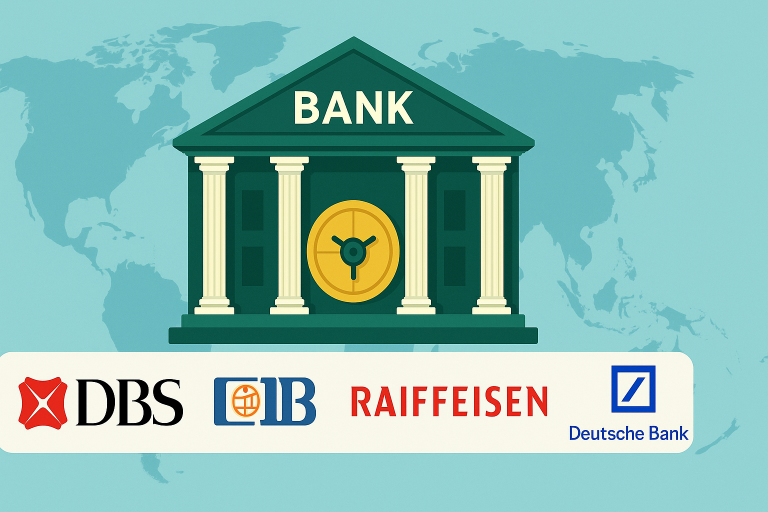When it comes to protecting your wealth, choosing the safest bank to keep your money is essential. In an increasingly volatile financial world, individuals and institutions alike seek banks known for their strong credit ratings, liquidity, capital reserves, regulatory compliance, and risk management practices.
Below are some of the most secure banks globally, known for their outstanding reputations, financial strength, and stability.
1. KfW (Germany)
KfW, the German state-owned development bank, consistently ranks as one of the world’s safest financial institutions. It enjoys an AAA credit rating from all major rating agencies and is backed directly by the German federal government.
Why it’s safe:
- Government-backed
- No lending to risky sectors
- Exceptionally high liquidity
2. Zürcher Kantonalbank (Switzerland)
Zürcher Kantonalbank (ZKB) is the largest of the Swiss cantonal banks and is backed by the Canton of Zurich. It offers full deposit guarantees and operates under strict Swiss financial laws.
Why it’s safe:
- Government guarantee
- Conservative lending policies
- Switzerland’s strong banking secrecy and regulation
3. DBS Bank (Singapore)
DBS is Southeast Asia’s largest bank and one of the safest in the world. It has won numerous global banking awards for risk management, innovation, and customer satisfaction.
Why it’s safe:
- AAA credit rating
- Strong liquidity ratios
- Operates in a stable economic environment
4. BNY Mellon (USA)
The Bank of New York Mellon focuses on institutional clients and asset servicing, rather than risky retail banking. It has a long-standing reputation for safety and fiduciary responsibility.
Why it’s safe:
- Limited exposure to consumer debt
- Highly liquid and well-capitalized
- Strategic focus on low-risk services
5. TD Bank (Canada)
Toronto-Dominion Bank is one of Canada’s “Big Five” and consistently ranks high for safety due to Canada’s stable financial regulatory system and conservative banking practices.
Why it’s safe:
- Strong government oversight
- Excellent capital adequacy
- Low exposure to speculative assets
6. Rabobank (Netherlands)
Known for its agricultural roots and cooperative model, Rabobank maintains a conservative approach to banking, focusing on customer deposits and low-risk lending.
Why it’s safe:
- Cooperative structure limits shareholder pressure
- Diversified revenue streams
- Strong capital buffers
7. Svenska Handelsbanken (Sweden)
This Swedish bank emphasizes prudent lending, decentralized decision-making, and a long-term view. It often avoids short-term gains in favor of financial resilience.
Why it’s safe:
- Low default rate
- Focus on customer service over growth
- Conservative balance sheet
8. Norinchukin Bank (Japan)
This bank serves Japanese agricultural, fishery, and forestry cooperatives, with limited exposure to risky markets. It’s known for maintaining very high capital levels.
Why it’s safe:
- Ultra-conservative investment strategy
- Robust liquidity management
- Government-aligned functions
Factors That Make a Bank Safe
When evaluating the safest bank to keep your money, consider the following:
- Credit Ratings: AAA-rated banks are generally most secure.
- Government Backing: Banks supported by national or regional governments tend to have guaranteed deposits.
- Liquidity and Capital: Strong capital reserves help banks weather economic shocks.
- Regulatory Environment: Banks in countries with strict regulations are typically safer.
- Operational Risk Management: Effective risk policies and diversified portfolios reduce vulnerability.
The safest bank to keep your money depends on your location, currency preferences, and risk tolerance. However, banks like KfW, ZKB, DBS, and TD Bank remain at the top globally due to their prudent practices, regulatory frameworks, and consistent AAA credit ratings. For high-net-worth individuals or institutions, diversifying across multiple top-rated banks in different regions is often the best protection strategy.
READ: Surprising Facts About the Bank for International Settlements

